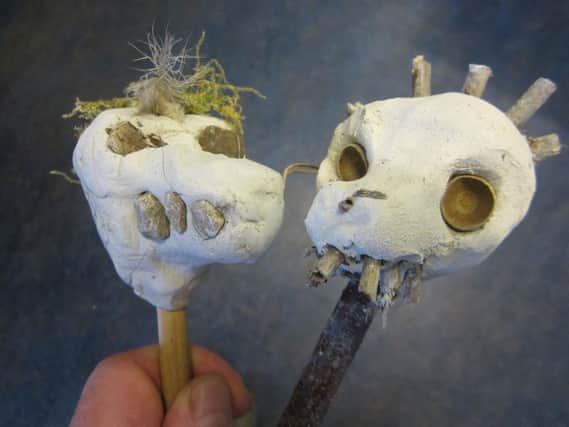New outdoor activities take kids back to the Stone Age and teaches them 'rocket science'


The 'Stone Age Experience' is a new outdoor activity managed by Nottinghamshire County Council at Brackenhurst Environmental Education Centre which has already attracted 20 schools and 620 pupils to take part in its first year.
The education centre is now launching a further outdoor activity called 'It’s Not Rocket Science' where pupils can be a rocket scientist for a day trying out a range of scientific experiments.
Advertisement
Advertisement
The sessions at the centre in Southwell are funded through individual school funds and voluntary contributions from parents and carers.
Councillor Tracey Taylor, Vice-Chairman of the Children and Young People’s Committee, at Nottinghamshire County Council, said: “These sessions extend the classroom to an outdoor environment which helps to provide a wonderful learning experience for school children to explore two exciting subjects. We hope that It’s Not Rocket Science can be as popular as the Stone Age Experience has already been in its first year.”
The activities are aimed at Key Stage Two pupils aged from seven to 11 years old and help schools to ensure they are meeting topics and subject areas which form part of the curriculum.
Stone Age Experience – Pupils become a tribe of hunter gatherers for the day who go back to 2000 BC for a stimulating and hands on activity session learning what life was like in prehistoric Britain.
Advertisement
Advertisement
They are dressed in costume for the day and their first task is to build shelters against the weather.
Other activities include creating a clay talisman to ward off evil spirits, practice cave painting skills on the centre’s ‘cave wall’ to create their own hunting story, and complete a woodland orienteering course, finding clues about what pre-historic people ate.
Nathan Stone, a teacher at St Andrew’s C of E Primary School, in Mansfield Road, Skegby, Sutton-in-Ashfield, said: “We found the event extremely useful in bringing what we had learnt about prehistoric people over the course of our topic to life. The children were extremely engaged all day and particularly loved taking home their medallions. The day was really well run and the children really got into the spirit of travelling back in time.”
Andrea Burvill, Year Three class teacher at Redlands Primary and Nursery School, in Crown Street, Worksop said: "The children loved the session and all wrote letters to thank the outdoor education team. They were engaged all day, loved being in the wild and found the Stone Age event to be one big exciting adventure to be hunter gatherers for the day."
Advertisement
Advertisement
It’s Not Rocket Science – Groups of pupils will spend time outside learning about forces, electricity and sustainability.
They will investigate forces through simple air/water rockets and learn about the science behind getting a rocket to take flight through comparing the amount of water needed and the angle of the rocket.
The young scientists will work in teams to measure the correct amount of rocket fuel, assemble their rocket for flight and predict what will happen when the rockets take off on the firing range.
As part of another activity, they will learn about how electricity is generated, and about other sustainable sources of energy. The pupils will make and test their own wind turbines to see which one makes the most electricity to see who wins the ‘Sustainable Superstar’ certificate.